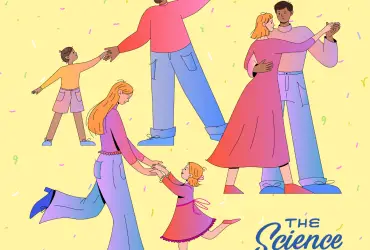I don’t consider skateboarding a sport.
It’s another path of life. A way to live. You end up doing it …there’s no reason… You’re not after something tangible in the sense of like a trophy or monetary gain or anything. That’s not why most skateboarders ever skated to begin with. It’s not any of that. There’s some sort of self-fulfillment that you get from it. And a sense of peace.
It’s not like a sport. There’s not these rules and regulations. You don’t need a number, you don’t need a team. You don’t need other people to do it. You don’t need a coach, you don’t need anything. It’s none of that. It’s something very different.
It stops the gears from grinding. The constant thought or even, you know, the daily stresses of life. It truly is therapeutic in that way. Completely. I’m trying to keep my sanity, is what it really comes down to. When you’re skating you’re not necessarily aware or conscious of what it is in that moment exactly that you’re doing. It’s not like you’re thinking when you’re skateboarding.
You just are.
Dacher Keltner: It is an honor to have skateboarding legend and music legend Tommy Guerrero with us here on the Science of Happiness. Tommy, thanks for being with us today.
Tommy Guerrero: Yeah thanks for having me.
Dacher Keltner: You were recently honored as a legend. What did that feel like?
Tommy Guerrero: I think it was Transworld. They do these awards and I didn’t want to do it. You know and I asked my buddy who said yeah, you got to kind of got to do it and I was like, Gahhh. I just I’m not one to rest on any of my laurels, or you know, these accolades that you’ve gotten and like woo hoo, I’m the greatest. I don’t care.
Dacher Keltner: Is it alarming to be a legend now?
Tommy Guerrero: You know what’s alarming about that is? Is that most legends, true legends, are dead. So I don’t want to be a legend yet.
Dacher Keltner: In one of your videos you talk about, which are really fun to take stock of the history of skating because you’re right at the center of the history of skating. You kind of talk about it has this important psychological quality for young people just to say, up yours to society. And there is a power in that freedom.
Tommy Guerrero: Completely. We do need that. You know the way society is set up is, I mean there’s all these parameters and walls and guidelines and rules. And as a kid you don’t want any of that. You want the freedom to do what you want to do. And kind of should be that way, when you really think about it. And so, when you find something that goes against the grain of pretty much everything, it’s magical.
Dacher Keltner: I worry… I’ve just raised a couple of teen daughters and it’s just harder for kids to have that moment or context where they can like, shake their fist at the world and say, I’m going to do things differently.
Society’s marginalization of skaters is really weird. I mean here’s, you know, a very green, you know environmentally-friendly form of transportation. Why is society so tough on skaters?
Tommy Guerrero: Ignorance mainly, I think. With street skating, you know the perceived damage of property which, you know, we won’t even go into that. I mean it’s really quite minor in the scale of things. But you know you have… I don’t know, a hundred basketball courts and tennis courts and soccer fields throughout the city and you have no skate parks. What sense does that make?
You know we started skateboarding on the streets because that’s what we had. You walk out your front door and there it is. And you make do with what you have.
It’s something positive. It’s safe, it’s healthy. It instills all of these great traits, it’s incredible, that you take with you for the rest of your life.
Dacher Keltner: Like what?
Tommy Guerrero: Tenacity, perseverance, grit. You know there’s that saying, you fall down seven times, you get up eight. And it’s true with skateboarding.
And the beauty of skateboarding is no matter where you go in the world, you can identify and relate to that person. It doesn’t matter culturally, language barriers, etc. It doesn’t even matter. You would go to
these other countries, other places, anywhere you go you feel at home no matter where you went. And the thing is about skateboarders when we were growing up, we were outcast. And so to have these people that you can identify with to be among your ilk, was pretty incredible. You know I can relate to a 6 year old skater and literally a 60 year old skater. No problem.
Dacher Keltner: Wish I had been better at it. So as you’re developing this interesting life in skateboarding you’re also performing a lot of music and how’d that start? Obviously there’s a lot of intersection between the skate scene and Bay Area music…
Tommy Guerrero: Completely. Yeah everyone who skated was in a punk band back then. My brother,
he’s a really phenomenal guitar player. And we were all self-taught. We’d just sit in my basement for hours and hours and just play.
Dacher Keltner: Making their parents very…
Tommy Guerrero: Oh yeah. My mom was super cool. Yeah, yeah she was very cool. In the garage we had all our gear set up and we’d make tons of noise and she put up with it. My aunt and uncle lived upstairs and everyone was cool with it.
Dacher Keltner: And now they’re seeing the fruits. But you’re moving into kind of a musical, more extensive part of your life. Rolling Stone called one of your albums one of their favorites of the year.
Tommy Guerrero: Yeah I think it was it was Soul Food Taqueria. My first thought was OK who paid this guy? OK there’s some payola happening here.
I would love to have the opportunity to play more live and with friends because it’s like skating to me. It’s like a session when you’re hanging out with everyone just and it’s a way of you kind of communicating too, with music.
Dacher Keltner: Well, it was really nice to hear your music and see what a life of skating leads to.
So I want to ask you about the practice that you did. You know of all the different practices that promote meaning and well-being on our website you chose gaining perspective on negative events. Why’d you choose this practice?
Tommy Guerrero: It’s something I’ve kind of been doing for quite some time in my life just a lot of introspection and kind of sitting back and trying to figure out why you go through these things that you do and how to best navigate them without a bunch of damage. To yourself and those around you.
And so, I unfortunately, I think far too much, you know I’m in my head quite a bit. But it helps me think these through. A way to be at peace with myself with these things that are going on. It just takes so much
thought and having to be able to put yourself in the middle. And on both sides.
You know kind of looking at the different angles and seeing it from other people’s perspective and you have to figure that out.
Dacher Keltner: And the way you talk about skating. It was in part, you had many different
reasons why you were drawn to it but part of it is just getting out and getting perspective on life.
Tommy Guerrero: Oh yeah. And traveling gives you a much better understanding of what the world is really like and people are really like. And the truth is, we’re all pretty much the same. We are all after the same things, the very basics. To be happy.
Dacher Keltner: I really admire the work that goes into this gaining perspective practice. It’s
by one of my colleagues at Berkeley, Ozlem Ayduk, and her colleague Ethan
Kross. And it’s as you describe it which is it’s this practice of, you know,
you deal with life’s sufferings. And you’re having trouble at home or at work
and you rely on one of the great gifts of the mind—which is just like you
said, like kind of be in the middle of it, and then kind of look at it from
different sides and look at it through the eyes of different people. With the practice you choose something that you’re
really having trouble with. And then you sort of use different kinds of ways of
referring to yourself to get perspective. So what did you do or how did you do it?
Tommy Guerrero:
Well initially, it depends on the situation but if it’s something that’s negative right, you’re angry. So there’s at first that moment where it’s like ah, you’re just pissed.
There’s a tendency to… you’re biased right? And that you
feel that this is unfair in a sense of where you’re being sort of, I don’t know,
perhaps attacked. And then you got to take a step back, look at the situation
and like OK, let’s look at this as a problem. There’s always a compromise in everything. How
do you get to that middle ground? I often made huge compromises for the benefit
of others. I mean compromise to myself, that I think is a compromise. Just to
realize that there’s a much bigger picture here. And I can’t be caught up in the
minutiae and the details of things when the picture is much more important. The
whole. So then I have to you know, just let go.
Dacher Keltner: So it sounds like you started with a conflict in between people that you’re sort of sorting out?
Tommy Guerrero: Yes. Yes. Yeah.
Dacher Keltner: Well, then what’d you do?
Tommy Guerrero: Well I’m still in it.
Dacher Keltner: I hear you. They never go away!
Tommy Guerrero: No no no no no. It doesn’t. Door opens and then a window closes and then another, you know.
Dacher Keltner: So how did you shift perspective on yourself? With this study what they do is they say you use your name and it kind of gets you to treat yourself as a different person or a different object if you will.
Tommy Guerrero: So the third person thing, that’s a difficult one to sort of go into the third
person and go, “Well Tommy what do you think about this? And well Tommy I
think about..” is actually is actually, it’s odd. And so I haven’t gotten
to that point feeling comfortable doing that. I know it helps remove from it…I
think that can help remove the ego to some degree. And that’s what a large part
of lot of this is, is ego, when it gets in the way. And so you have to figure
out how to diminish that..
Dacher Keltner: One of the other studies that they use is like imagine you’re filming yourself in this
situation and that’s helpful for me. Like I’m in this conflict with my teenage
daughter and I or you know a family member or somebody at work and I imagine
like what it would look like if It was a film. How do you do it?
Tommy Guerrero: Well I’ve, I’ve seen myself on film quite a bit.
Dacher Keltner: You have an advantage there.
Tommy Guerrero: And you know and I highly dislike seeing myself on film or even hearing myself for that matter. So that’s part of the whole you know, third person thing’s like ugh…and I don’t want to… I’m so tired of myself. You know I look at myself in the mirror every day. That’s enough. That’s enough of me. I grew up in the media. I mean in magazines and in videos and my life has been extremely public and you go online and it’s everywhere. And so to have it that much in my face, if I can diminish that, great.
Dacher Keltner: Last thing you want to do is call yourself Tommy, like the rest of the world.
Tommy Guerrero: Yeah, yeah. Well there’s so much out there, especially in this day and age, of
everyone tooting their own horn. And it’s just ugh. it’s kind of gross. Because
the truth of the matter is no matter how good at something you are, there’s
always someone much better. And under-appreciated. And so I just don’t see how
people can buy into it. They just buy right into it. Yeah, I’m the greatest. Yay!
No, you’re not. Come on down to our level, right here. Reality. Check in.
And when you know, you live in a society, in a world that is so vain…
Dacher Keltner: Did that frustrate you, like just kind of having these very pure reasons why you’re out skating and then suddenly it becomes this media phenomenon?
Tommy Guerrero: To some degree, yeah, yeah. Because it’s marketing and they blow it up to something that’s much bigger than it truly is.
You know what I hope to do find some ways to give back through skating and through music you know trying to do benefits, trying to figure out ways through what I do and what I love to do, to hopefully actually give back in a tangible way.
I’m fortunate to have had this life that I’ve led. It’s been incredible.
To be honest a lot of times, I look at it outside of myself,
as though it was someone else’s life. Because it was quite some time ago, the
heyday of it, and the things that I had the opportunity to do and that were
going on in that time. And to continue on and to have people that actually you
know care about what I do and are, a lot of people are emotionally impacted and
inspired by it in positive ways is like, wow. You know then you start to
realize like oh, I guess I have a reason why I’m here because that’s another
aspect. What’s the bigger picture, why am I even here?
And so that’s the one that I go to so often. The big picture. You know when you have children.. I mean that’s the bigger picture right? That’s part of it. You’re like well any, all that other stuff doesn’t even matter. If my child is healthy and happy and safe. Woo hoo! I’m fucking winning. Excuse the language.
Dacher Keltner: Well Tommy Guerrero, I wanted to thank you for being on The Science of Happiness. It’s always a treat to see, you know people who have had these completely
original lives and done things in the world, what kind of practice they choose. And I think it’s safe to say that you know the young kids are skating today got
a lot of perspective from your life and people listening to your music got a lot of perspective from your life. And so thanks being on our show. We really appreciate it.
Tommy Guerrero: Yeah of course. Thanks for having me.
Dacher Keltner:
Like Tommy Guerrero, we’ve all experienced times in our life
when we ruminate, worry, about the problem and difficulties and stresses that we’re
facing and it’s as if we just can’t get it out of our head. Ethan Kross, who’s
at the University of Michigan, has done a series of studies finding that the perspective
you take upon yourself, how you refer to yourself, the particular way you think
about yourself can help you frame your problems in more peaceful and abstract
ways.
Ethan Kross:
What we did in the key experiments involved inducing stress
in various ways. We told participants that they’d have to give a speech on why
they’re ideally qualified to land their dream job and didn’t give them any
really any time to practice. We had half
of the participants reflect on the anxious thoughts streaming through their
head in the first person, using first person singular pronouns — I me, my, what
am I thinking what are my feelings like. And the other condition We told people
to use their name and other non first-person pronouns to reflect on what was
going through their head – what we call distance
self- talk. And then we looked at what effect that those different sets of instructions
had on participants’ performance and how they felt.
And across studies we found that using distance self-talk led people to experience less anxiety and also perform better under these stressful contexts and also in terms of physiological responses. Lower cardiovascular activity and things of that sort.
What we’re learning is that psychological distance is one element that can be useful in allowing people to focus on those negative experiences more effectively without getting really stuck and caught up in those ruminative thoughts spirals.
When kids start learning how to control themselves they actually talk to themselves out loud like a parent might do coaching and critiquing themselves along.
But over time those conversations go silent they go internal. This very primitive way that we enter the world regulating ourselves can emerge later on in life and serve an adaptive function later on as well.
One of the benefits of reducing the intensity of the emotion surrounding some of these negative experiences and gaining a broader perspective is that it can help you not feel overwhelmed by the intense negative emotions that often accompany very important situations in our lives. And turning down the thermostat a tiny bit not turning it off. Not feeling nothing but reducing the anxiety reducing the sadness a little bit I think can be remarkably useful for helping people feel better and perform better.










Comments